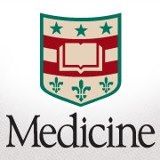WASHINGTON UNIVERSITY SCHOOL OF MEDICINE

🇺🇸United States
- Country
- 🇺🇸United States
- Ownership
- Private, Subsidiary
- Established
- 1891-01-01
- Employees
- 10K
- Market Cap
- -
Revolutionary drug for schizophrenia wins US approval
KarXT, a new antipsychotic targeting muscarinic receptors, received US approval, offering potential for more effective and better-tolerated schizophrenia treatment. It modulates dopamine release and improves cognitive function without severe side effects, marking a shift in psychosis treatment. Future drugs may further refine this approach, tailoring treatment to individual needs.
Making a commitment to connect people through technology
Justin Starren, MD, PhD, became a doctor to prevent medical tragedies like his father's death from steroid-induced pneumonia. He pivoted to biomedical informatics, aiming to impact more lives through technology and data. Now at the University of Arizona Health Sciences, he leads the Center for Biomedical Informatics and Biostatistics, focusing on health disparities and data ethics, particularly for Native American and Hispanic communities.
Personalized Medicine Market Size to Reach USD 1,176.66 Billion By 2033
The global personalized medicine market is projected to grow from USD 530.11 billion in 2023 to USD 1,176.66 billion by 2033, driven by demand for novel drug discovery, collaborations, regulatory support, digital health innovations, and rising prevalence of chronic diseases. Key players include 23andMe, Inc., Abbott Laboratories, and Illumina, Inc., among others.
VUMC joins national effort to prevent another pandemic
Vanderbilt University Medical Center joins ReVAMPP, a $100 million/year NIH program to develop vaccines and antibody therapies against viral threats, with a $13 million/year grant for bunyaviruses and picornaviruses research.
Blood tests for Alzheimer's disease in the era of anti-amyloid therapies
Eisai's 40-year effort in Alzheimer's drug discovery led to breakthroughs, including anti-amyloid and anti-tau antibodies. Early diagnosis, crucial for effective treatment, historically relied on brain autopsy. Advances in biomarkers, like amyloid PET and CSF tests, have improved diagnosis but face limitations. Blood biomarkers (BBMs) offer practical advantages, with recent studies showing plasma p-tau217 tests matching CSF accuracy. The development of BBMs and anti-amyloid therapies aims to transform AD diagnosis and treatment.
Alzheimer's heterogeneity necessitates diverse enrollment in clinical trials
Clinical trials for Alzheimer's drugs, like Eli Lilly's Kisunla and Eisai's Leqembi, often lack diversity, excluding racial minorities, ApoE4 homozygotes, and patients with comorbidities. This underrepresentation hampers the validation of eligibility criteria in diverse populations, necessitating new cutoffs. Challenges include socioeconomic barriers and inadequate outreach, impacting trial enrollment and patient care.
Related Clinical Trials:
Huang named head of pathology & immunology
Eric J. Huang, MD, PhD, a neurodevelopmental and neurodegenerative diseases expert, will head the Department of Pathology & Immunology at Washington University School of Medicine in St. Louis starting Jan. 1.
WashU Medicine finds anti-clotting drugs fail to improve stroke care outcomes
WashU Medicine's MOST trial found anti-clotting drugs argatroban and eptifibatide failed to improve stroke outcomes, leading to higher disability and mortality rates.
Clinical trial: Solid Tumors, (NCT06241456)
Locations include Yale New Haven Hospital - Yale Cancer Center in Connecticut, Karmanos Cancer Institute in Michigan, University of Minnesota Medical School in Minnesota, Washington University School of Medicine in Missouri, Oncology Hematology Care Clinial Trials in Ohio, OU Health Stephenson Cancer Center in Oklahoma, Thomas Jefferson University in Pennsylvania, Sarah Cannon Research Institute (SCRI) - Nashville in Tennessee, and The University of Texas MD Anderson Cancer Center in Texas.
Could Having MS Help Shield Against Alzheimer's Disease?
A study suggests MS patients have a lower risk of Alzheimer's; they are less likely to have elevated blood levels of toxic proteins forming amyloid plaques, a hallmark of Alzheimer's. Researchers believe MS biology or genetics may be protective against Alzheimer's, potentially informing therapeutic strategies.
© Copyright 2024. All Rights Reserved by MedPath
